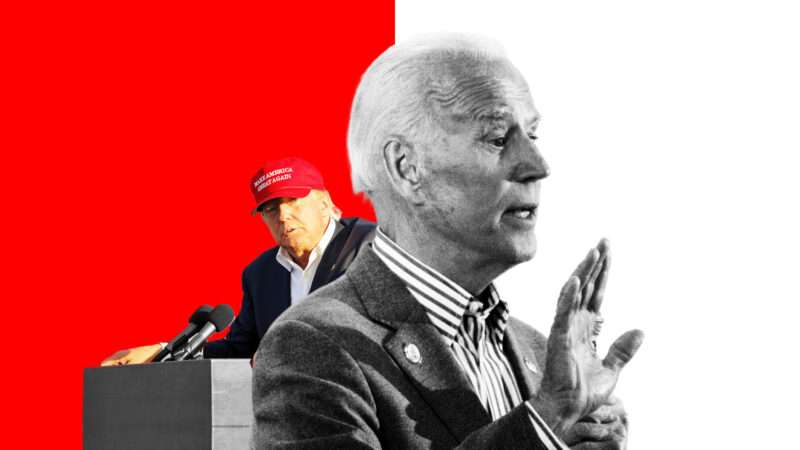
Three states hold their primary elections today: Delaware, Rhode Island, and New Hampshire. After a redistricting process conducted by a court-appointed special master, both of New Hampshire's congressional districts are considered competitive, and one of its Senate seats could be in play as well. But unfortunately, Democrats are once again playing with fire by supporting immoderate Republican candidates.
Sen. Maggie Hassan (D–N.H.) is running for reelection after beating a Republican incumbent in 2016 by one-tenth of a percentage point. Among her 10 potential Republican rivals, national Republicans support Chuck Morse, a moderate who serves as the state's Senate president.
But earlier this month, Senate Majority PAC, which is aligned with Sen. Chuck Schumer (D–N.Y.), funded an ad for one of Morse's primary opponents: Don Bolduc, whom even allies call a "loose cannon." Bolduc has proposed sending U.S. troops to fight in Ukraine, and described Gov. Chris Sununu as a "Chinese Communist sympathizer." The ad refers to Morse as "another sleazy politician," chosen by "Mitch McConnell's Washington establishment." The PAC spent over $3 million, more than five times what Bolduc has raised in campaign contributions.
On the House side, Rep. Annie Kuster is running unopposed for the Democratic nomination in the state's second congressional district. The Republican field, on the other hand, is crowded, with seven candidates running to be Kuster's opponent. A mid-August poll found that while 51 percent of respondents would vote for "someone new" over Kuster, no Republican candidate had any sort of consolidated support.
In May, Sununu endorsed Keene's mayor, George Hansel, in the race. Sununu, a relatively moderate Republican in a politically independent state, is also one of the country's most popular governors. Last year, Republican Senate leadership even tried to convince him to run against Hassan.
Similarly, Hansel is a moderate Republican mayor of a relatively liberal city. He says he would oppose gun control measures but he would also oppose federal bans on abortion, describing himself as pro-choice but feeling that it is an issue that should be left to the states. His main competition is Robert Burns, a 2016 delegate for former President Donald Trump. Burns supports a federal fetal heartbeat law, as well as a wall on the U.S.-Mexico border.
But in August, Politico reported on a sizable ad buy centering on Burns. Democrats Serve, a group that "backs Democratic candidates with public service backgrounds," spent $94,000 on a late-August TV spot, nearly six times what Burns himself had spent on ads. It calls Burns "the ultra-conservative candidate for Congress" and says he "follows the Trump playbook on immigration, the border, and guns." A Massachusetts-based political mail firm affiliated with Democrats sent out mailers in August with a similar message.
The ads may have taken different tacks, but all have the same emphasis: presenting moderate Republican candidates as less appealing to the party's base. If Republican primary voters choose candidates further from the mainstream, then Democrats hope to have an easier time beating them in the general election. By now this is a familiar pattern: In states from Maryland to Pennsylvania to Michigan, Democrats have collectively spent tens of millions on ads painting Republican candidates as "too conservative" or "handpicked by Trump."
It's a bad idea in any context, but the tactic looks especially craven in light of President Joe Biden's speech in Philadelphia earlier this month.
From Independence Hall, Biden warned that "Donald Trump and the MAGA Republicans represent an extremism that threatens the very foundations of our republic." He said they "promote authoritarian leaders," "fan the flames of political violence," and are "committed…to destroying American democracy." Opposing these forces constituted "a battle for the soul of this nation."
But Biden's warning rings hollow while his party is spending a fortune propping up MAGA Republican candidates, hoping to make them just electable enough for primary voters but not quite electable enough for the general public. It's a considerable gamble that could easily backfire.
The post Biden's Party Is Still Boosting Those 'MAGA Republicans' the President Warned Us About appeared first on Reason.com.







